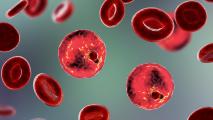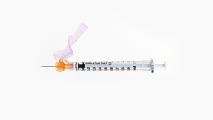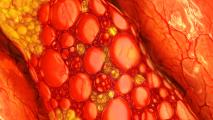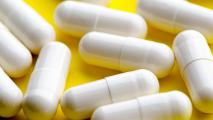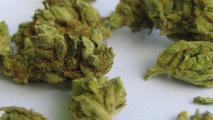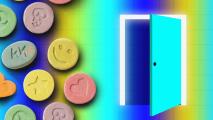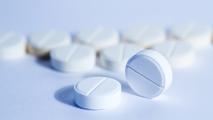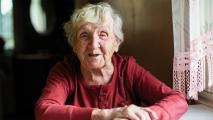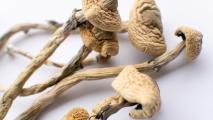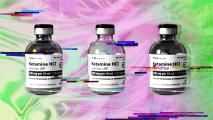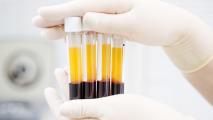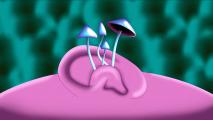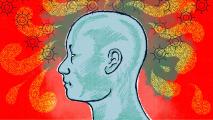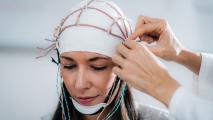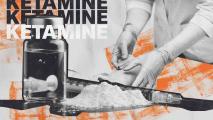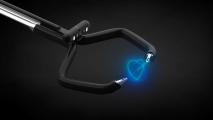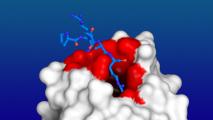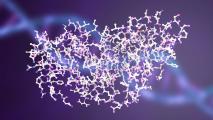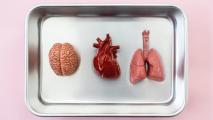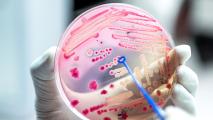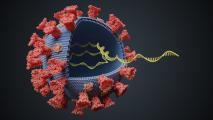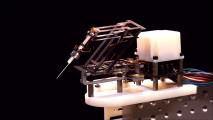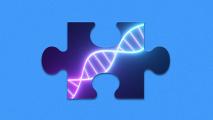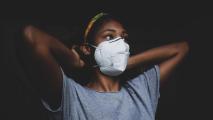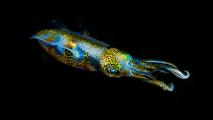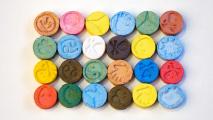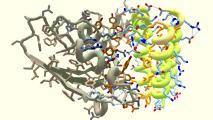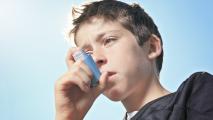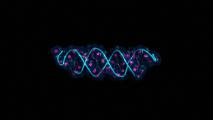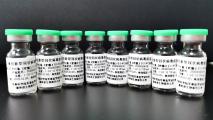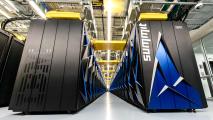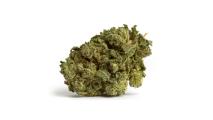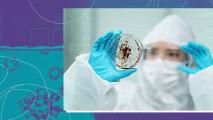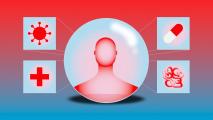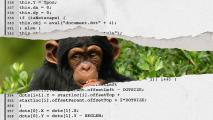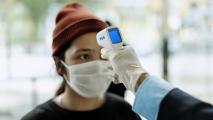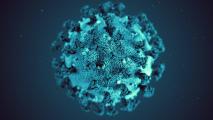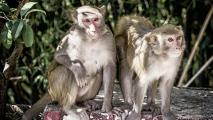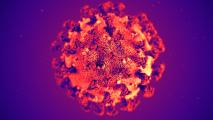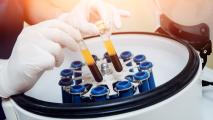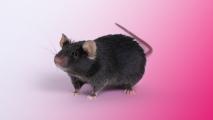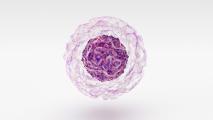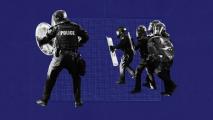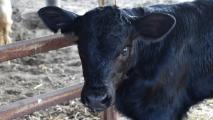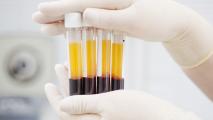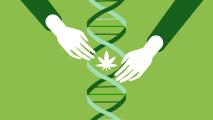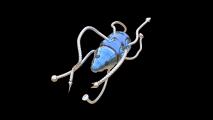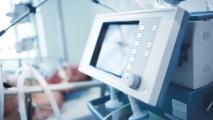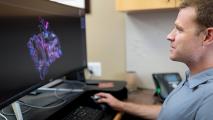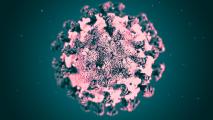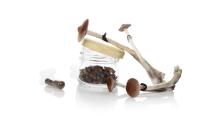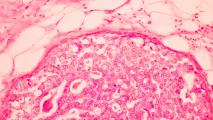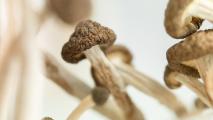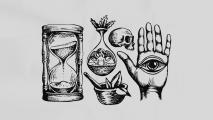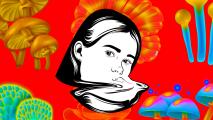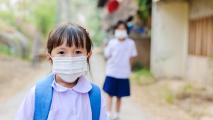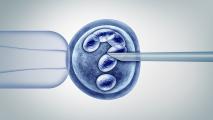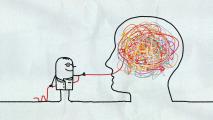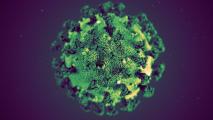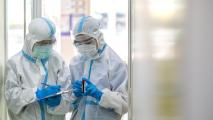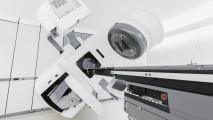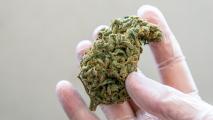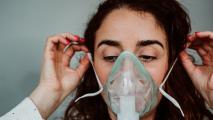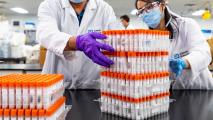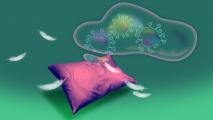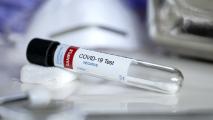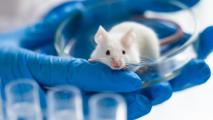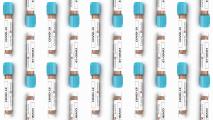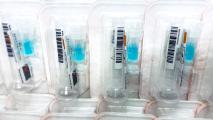Showing 809 results
It's now easier to see individual atoms, thanks to new tech
With improved tech, two teams have sharpened cryo-electron microscopy to be able to see individual atoms.
Can RNA create a malaria vaccine?
An effective malaria vaccine could save hundreds of thousands of lives each year. Can RNA vaccines like the ones fighting SARs-CoV-2 tackle another disease?
Personalized skin cancer vaccine is made from tumor cells
A personalized skin cancer vaccine developed from melanoma survivors’ own tumor cells has shown promise in a small trial.
Safe injection sites are legal, US court rules
A U.S. judge has ruled that safe injection sites, places where users can consume drugs under medical supervision, don’t violate federal drug laws.
"Autoantibodies" may be causing COVID-19 blood clots
COVID-19 blood clots may be caused by autoantibodies, which attack the body’s own tissues and organs instead of intruders.
Antiviral pill shows promise as treatment for coronavirus
The oral antiviral drug EIDD-2801 has emerged as a promising treatment for coronavirus, performing well in the lab and in mouse studies.
An LSD trip “off-switch” may be coming soon
Pharmaceutical startup MindMed is developing tech it believes could serve as an “off switch” for an LSD trip during therapy sessions.
Ibogaine: The psychedelic cure?
Ibogaine, an African psychedelic drug which comes from the iboga plant, is used for both religious rites and drug addiction treatment.
Microdosing marijuana can relieve chronic pain
Microdosing marijuana can relieve chronic pain without impairing a person’s ability to think clearly, according to a new study.
MDMA therapy and the promise of psychedelics
Despite years of work with a "stellar" therapist, Charlotte needed more. She turned to MDMA therapy.
New vaginal ring reduces risk of HIV and pregnancy
A vaginal ring that serves double duty as both long-term contraception and convenient HIV prevention showed promise in a small study.
“Off-switch” in mouse brains offers new hope for pain relief
A newly discovered part of the mouse brain appears to naturally stop pain processing, and it could lead to more robust pain relief options in the future.
CRISPR used to edit HIV cure into monkey embryos
A mutation of the CCR5 gene can cure HIV — and thanks to CRISPR, scientists may soon be able to study it in animal models.
FDA to begin testing chloroquine as coronavirus treatment
The FDA has announced plans to begin testing chloroquine, an anti-malaria drug, as a potential treatment for the novel coronavirus behind COVID-19.
How we doubled our life expectancy in the last 100 years
“The idea of taking a pill and getting better is actually a very recent invention.”
This company is using beer yeast to make psilocybin
Brewing the magic in Psilocybe cubensis is difficult at scale. One Danish company thinks beer yeast may be the answer.
New vanishing wound dressing heals skin with minimal scarring
A new kind of hydrogel dressing improves wound healing and minimizes scarring by kicking the adaptive immune system into gear.
Could VR change how you trip on ketamine?
Virtual reality meets ketamine therapy to help treat pain, anxiety, and depression, to name a few.
Blood plasma from coronavirus survivors could save lives
A drug company is using the blood plasma of coronavirus survivors to develop a treatment for those still battling the disease.
Fireside Project is a support line for your bad trip
Fireside Project is a nonprofit that is providing a support line for your challenging psychedelic experiences — read: bad trip.
A lesson on empathy from a people-first CEO
In partnership with Conscious Capitalism
In an increasingly competitive corporate world that so often prioritizes profits over people, one CEO is flipping the script and calling attention to the importance of empathy in the workplace.
CRISPR scientists win Nobel Prize in chemistry
For the first time, the Nobel Prize in chemistry has gone to two women: CRISPR scientists Emmanuelle Charpentier and Jennifer A. Doudna.
Series|
Dope Science
I use ketamine for depression – here’s how it works
Commonly known as a party drug, ketamine’s powerful effects on the brain have led doctors to further explore its medical potential. Now, the animal anesthetic is providing relief and hope for people with severe depression.
Cancer immunotherapy “baits” the immune system into attacking hidden lung tumors
When cancer spreads, it often ends up in the lungs. ImmunoBait can ride a red blood cell in mice to deliver cancer immunotherapy where they live.
Stopping nightmare disorder with a prescription-only watch
A prescription-only watch that treats nightmare disorder is the latest in a growing subset of health technologies called prescription digital therapeutics.
Genetically engineering the first hypoallergenic cat
Scientists are attempting to create the world’s first truly hypoallergenic cat by deleting the feline gene that causes cat allergies.
Can AI predict which depression treatment is most effective?
Artificial intelligence-powered algorithms that analyze brain scans are showing promise in helping doctors find an effective depression treatment on the first try.
Ketamine explained: Understanding the special k drug
Ketamine, known recreationally as the “Special K” drug, is a trance-inducing anesthetic that researchers believe has more powerful uses off the dance floor.
The augmented, virtual, human-machine future of surgery is here
Advancements in XR technologies are rapidly integrating into the future of surgery.
Pain relief from coronavirus may be helping it spread
Rather than feeling sick, some people may be getting pain relief from coronavirus — a discovery that could impact both the pandemic and the opioid epidemic.
Immune proteins show promise as COVID-19 treatment
Immune proteins called interferons appear useful as a COVID-19 treatment if given to patients before an infection becomes severe.
How organoids are helping scientists fight the coronavirus
Researchers are turning to organoids — lab-grown clumps of cells that mimic human organs — in an effort to better understand the coronavirus.
AI helps scientists discover powerful new antibiotic
Using a computer model powered by artificial intelligence, researchers at MIT have identified several promising candidates for powerful new antibiotics.
DNA might be able to explain varying coronavirus symptoms
Scientists are looking for genetic factors that could explain varying coronavirus symptoms amongst seemingly similar COVID-19 patients.
Pocket-sized bot can perform surgery better than humans
A tiny origami-inspired robot assists surgeons in a mock surgery.
This parent is helping push autism gene therapy forward
Not too long ago, autism gene therapy was a pipe dream. Now, armed with specific targets and new methods, a small wave of gene therapies is gathering.
Good news, bad news, and reasons to be optimistic about COVID-19
Much has evolved since the earliest predictions about COVID-19. Here's how the data is updating our view on the coronavirus.
Y Combinator startups turn resources toward coronavirus
More than 25 Y Combinator startups have joined the COVID-19 response effort — find out how you can help these businesses fighting the coronavirus.
Can RNA editing catch up to CRISPR?
Developed in the 1980s, RNA editing was overshadowed by CRISPR. But the last few years have seen a resurgence of interest in the gene editing technique.
MDMA effects, risks, and rewards explained
MDMA, also known as Molly or Ecstasy, is a synthetic psychoactive drug. MDMA effects include enhanced pleasure and a heightened sense of touch and sound.
Crowdsourcing the seed for coronavirus antiviral medications
Foldit players are solving a protein structure puzzle that could help kickstart coronavirus antiviral medications.
Intro to LSD
LSD, also known as acid, is a synthetic chemical that causes hallucinations, synesthesia, and sometimes, distress - the dreaded “bad trip.”
$25 genetic test can improve asthma treatment for kids
Before prescribing an asthma treatment to children, doctors should use a cheap genetic test to look for a specific altered gene, according to a new study.
Beyond COVID: mRNA vaccines may treat cancer and more
The technology used to make the COVID-19 vaccine could be used to treat other diseases too.
Here is every potential coronavirus treatment and vaccine
Across the globe, researchers are scrambling to find a coronavirus treatment or vaccine that could bring the COVID-19 outbreak to a swift end.
World’s fastest supercomputer finds 77 drug candidates that could help battle COVID-19
The Summit supercomputer made quick work of complicated simulations to identify 77 compounds that could be promising COVID-19 treatments.
Study may explain why cancer gets more aggressive as we age
A molecule in the blood of older people promotes the spread of cancer, which could explain the link between age and metastatic cancer.
Medical cannabis explained
Medical cannabis is everywhere. We're answering your basic questions and unpacking the promises and pitfalls, based on the latest research.
Every significant breakthrough that’s stemmed from the pandemic
A timeline of coronavirus solutions from the people on the frontlines of the fight against COVID-19.
These are the medical breakthroughs that inspired us in 2020
2020 has put medicine to the forefront like never before. Freethink’s B. David Zarley looked back on the year and chose three medical developments that inspired him.
We may have found a drug to curb meth addiction
Meth addiction is on the rise, so this team of researchers is working to develop the first FDA-approved medication to treat the use disorder.
Crowdsourcing ideas for animal conservation technology
The Digital Makerspace looks to an online community of thinkers to identify the most crucial animal conservation problems and solutions.
Twin study suggests genes factor into COVID-19 symptoms
Genetic factors may explain about 50% of the differences in people’s COVID-19 symptoms, according to a study of more than 2,600 twins in the U.K.
The daily coronavirus news roundup – friday, march 20th
Each day, Freethink publishes the “Coronavirus Roundup,” a collection highlighting the latest must-read COVID-19 stories from us and others.
New HIV vaccine gives monkeys longer-lasting protection
Scientists have created an HIV vaccine that triggers two types of immune response, providing monkeys with longer-lasting protection from infection.
The daily coronavirus news roundup – tuesday, march 24th
A hospital ship off the coast of Los Angeles, the potential new coronavirus treatment, and other fresh coronavirus news updates.
Can green light therapy cure chronic pain?
Scientists are finding that exposure to the color green, also known as green light therapy, could provide natural chronic pain relief.
Plasma from coronavirus survivors helps sick patients recover
Two studies in China found that plasma from coronavirus survivors helps patients with severe cases of COVID-19 recover within days of treatment.
Astronauts lose muscle in space. These mice could hold the solution
Without gravity, astronauts experience muscle and bone loss, limiting mission time. Mice that gain mass in orbit may hold the key to preventing that loss.
The world's first living machines
The world's first living robots may one day clean up our oceans.
Is police reform even possible?
Here are four things we can change to reduce police violence and increase accountability.
Series|
Catalysts
Rethinking addiction recovery with fitness
In partnership with Stand Together
As drug overdose deaths climb higher, this gym is challenging the thinking behind traditional models for addiction recovery services with free memberships open to anyone sober for at least 48 hours.
This genetically modified cow could transform beef production
Cosmo the bull calf has an extra SRY gene, which makes him more likely to sire male cows — and also makes him a strong candidate for use as a GMO food.
Doctors need to learn what illnesses look like on darker skin
Medical student Malone Mukwende wrote a book to teach others how to spot clinical signs of illness on patients with darker skin tones.
Survivors’ plasma might prevent coronavirus infections
Injections of COVID-19 survivors' blood plasma might prevent coronavirus infections, making them a promising stopgap until a vaccine is ready.
CRISPR may unlock targeted cannabis therapy
New medicinal cannabis research shows potential for personalized drug therapy, without the side effects.
What's special about cancer-killing nanobots? precision.
These tiny, robotic machines can deliver drugs directly to infected cells, and they're changing the future of medicine.
How to explain falling COVID-19 mortality rates
COVID-19 mortality rates are dropping in the U.S. and other nations — a few theories explain why more people are surviving the coronavirus.
Our spare computer is helping fight coronavirus. yours can, too.
Help fight the coronavirus by donating your spare computing power to Folding@home, which will use it to run valuable protein-folding simulations.
Contact-tracing tech advances, the new saliva test, and more COVID-19 updates
In our weekly news roundup, we take you inside the fight against COVID-19 to explore the solutions on the frontlines of an unprecedented global response.
Psychedelic mushrooms explained
Psychedelic mushrooms, AKA magic mushrooms or psilocybin mushrooms, are currently being researched as a treatment for depression, addiction, and more.
Legal pot is finally growing up and going to college
As medical marijuana becomes mainstream, so does the need for an educated workforce in the industry. Enter the nation's first-ever cannabis degree program.
Genetic “off switch” may lead to new breast cancer treatment
A much-needed triple negative breast cancer treatment could center on the suppression of a single gene identified in a new Tulane University study.
Series|
Dope Science
Microdosing psychedelics
Microdosing is the no-flowers-in-your-hair practice of regularly taking minimal amounts of hallucinogenic substances. Although it’s currently illegal, millions of dollars are being poured into further research.
Medieval medicine yields modern weapons
Deadly antibiotic-resistant superbugs require new weapons. Ancient and medieval medicine may point us to where to find them.
New promise for psychedelics and depression
New findings on psychedelics and depression show the benefits of microdosing, and could present more effective treatment options.
What is protecting kids against the coronavirus?
Something is protecting kids against the coronavirus, and researchers want to figure out what it is so they can use it to develop a treatment.
MDMA has long-lasting benefits as a PTSD treatment
The benefits of MDMA therapy as a PTSD treatment appear to last for at least a year, according to a newly published paper.
Gene therapy hailed as cure for sickle cell disease
A gene therapy that uses CRISPR to edit a patient's own stem cells looks like a “functional” cure for sickle cell disease and beta thalassemia.
New PTSD therapy dulls the sting of painful memories
A Canadian researcher’s reconsolidation therapy is helping people overcome PTSD by allowing them to edit painful memories to be less emotionally impactful.
Healing PTSD with MDMA therapy
New hope for PTSD sufferers is coming from an expected quarter: MDMA.
Can a wellness app really change someone’s life?
In partnership with Virgin Pulse
America has the highest per capita health spending in the world, and yet, worse population health outcomes than most other developed nations. This wellness app gets to the heart of the issue.
The daily coronavirus news roundup – friday, march 27th
Slowing infection rates in New York, a robot that's delivering vital supplies, and other fresh coronavirus news updates.
Addict-turned-neuroscientist on addiction and the brain
In our interview with neuroscientist Judith Grisel, she discusses the state of research on addiction and the brain, as well as society’s view of addicts.
Mobile decontamination units could extend supply of PPE
To extend the supply of PPE at hospitals during the coronavirus pandemic, a team of engineers transformed a shipping container into a decontamination unit.
Doctors debate over using radiation therapy for COVID-19
Citing evidence from the past and recent, small trials, some doctors are calling for low-dose radiation therapy for COVID-19 patients. Controversy has followed.
Fighting to get breast pumps to mothers in prison
Breastfeeding isn’t a right afforded to mothers in prison. One former inmate wants to change that.
CBD slows growth of brain cancer cells in a Petri dish
The cannabis compound CBD can slow the growth of brain cancer cells, but it’s a long way from a new cancer treatment.
Doctors test solution for COVID-19 phenomena, silent hypoxia
Doctors treating COVID-19 patients are testing the ability of common blood thinners to address silent hypoxia, one of the disease’s most alarming phenomena.
New coronavirus test offers results in minutes
Abbott Laboratories’ new coronavirus test can tell if a person has COVID-19 in just five minutes — far faster than existing testing methods.
NY’s bail reform challenges a biased system
Seeking justice in a broken system, the state of New York eliminates cash bail for most misdemeanors.
The science behind your crazy pandemic dreams
If you’ve been having strange dreams and poor sleep during lockdown, you’re not alone. The anxiety-inducing pandemic, less activity, and more screen-time have many more people struggling with insomnia than usual.
FDA authorizes first at-home coronavirus test kit
The FDA has authorized LabCorp’s at-home coronavirus test kit, meaning people no longer need to leave their houses to find out if they have COVID-19.
New coronavirus vaccine candidate creates antibodies in mice
A new coronavirus vaccine candidate that delivers inoculation via a microneedle patch has shown promise in a peer-reviewed mouse study.
Scientists use CRISPR to reverse diabetes in mice
Scientists have used CRISPR to correct a diabetes-causing mutation in stem cells and then use those cells to reverse diabetes in mice.
New coronavirus test could check one million people daily
BillionToOne has announced the creation of a coronavirus test it says would allow the U.S. to check more than one million people for COVID-19 daily.
Major League Baseball joins massive coronavirus antibody study
More than 10,000 Major League Baseball players and employees agreed to have their blood tested for a massive coronavirus antibody study.
Doctors use AI to test new coronavirus treatments on patients
The University of Pittsburgh Medical Center launched a new trial that uses artificial intelligence to test promising coronavirus treatments as quickly as possible.
It's safe to order takeout during the coronavirus pandemic. here's why.
Many experts agree that you can safely order takeout during the coronavirus pandemic — you just need to follow these steps.
FDA approves first saliva test for coronavirus
The FDA has granted a saliva test for coronavirus emergency use authorization, giving health officials a new way to diagnose COVID-19.

